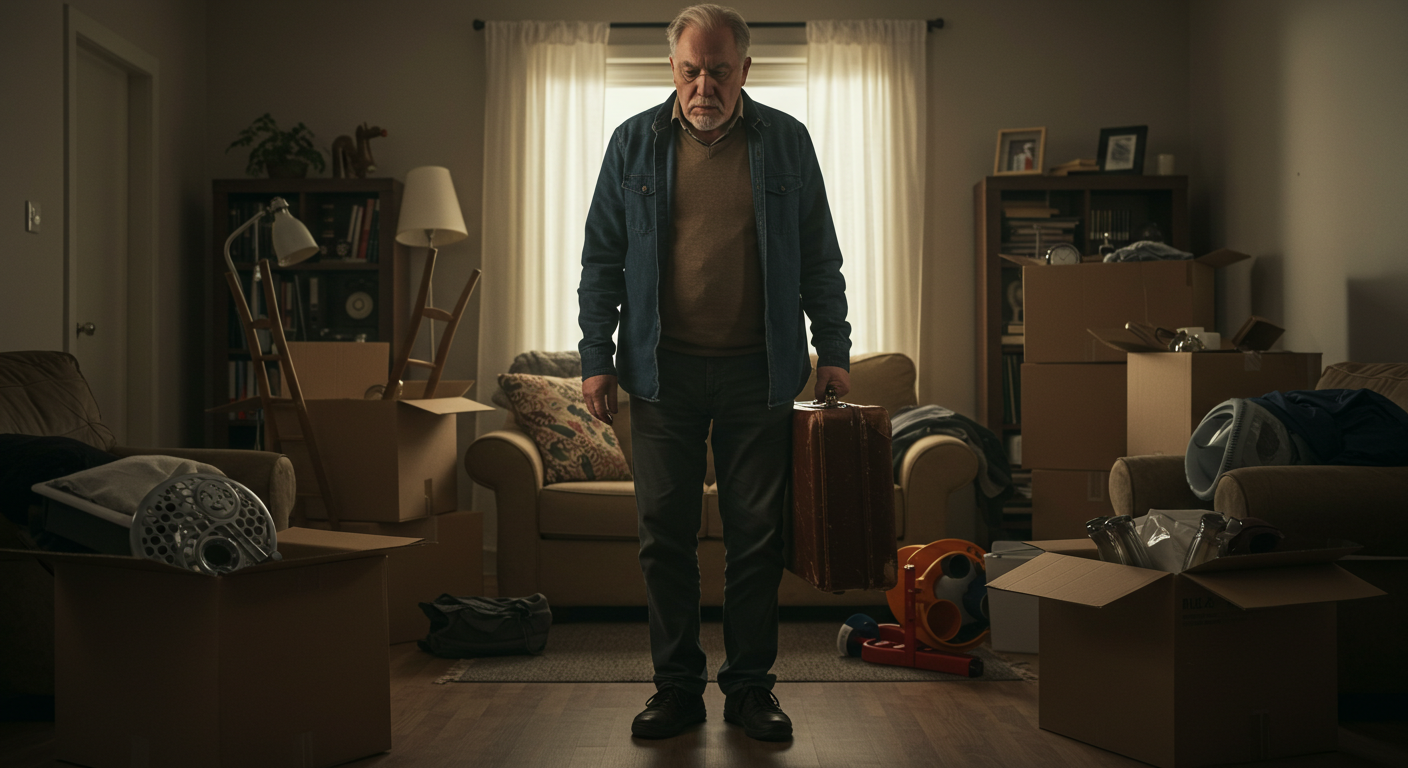Kids often get caught in the middle of divorce like the rope in a tug of war. That’s just the hard truth we see daily as family law attorneys.
In the best-case scenario, both parents live close to each other after divorce. The kids keep going to the same school. They spend time with both Mom and Dad. Life feels somewhat normal.
But life isn’t always that simple. You may have been offered a fantastic job opportunity in Minnesota, or perhaps you want to go back to your entire support system – parents, siblings, closest friends – who live in Illinois.
Moving with kids after divorce isn’t just about packing boxes and finding a new home. It’s about navigating complex emotions and legal requirements. We’ll walk you through everything you need to know.
Wisconsin Law on Relocation After Divorce
It all starts with a motion to the court. Before you even think about putting your house on the market, you need legal approval.
Everything begins with a motion to the court. Wisconsin law (specifically Wis. Stat. § 767.481) lays out the ground rules. First, if you want to move more than 100 miles away from where the other parent lived at the time of divorce, you need court approval.
The timeline is crucial here. You must give written notice to the other parent at least 60 days before you plan to move. This notice needs specific details:
- Where you’re planning to move
- When you want to move
- Why you’re moving
- Your proposed new schedule for placement
- A reminder that the other parent can object to the move
If the other parent objects, the court schedules a hearing to figure out if moving is best for your child.
Sometimes, life throws you a curveball that you just can’t dodge. Maybe your company needs you to transfer next month. Or your elderly mom had a fall and needs immediate help. We’ve seen it all, and here’s the good news: Wisconsin courts understand that emergencies happen. They can fast-track the process when needed.
While everyone figures things out, the judge might issue a temporary court order. These keep things running smoothly until a final decision comes through.
Factors Considered by the Court
When parents can’t agree on relocation, the court steps in. Remember – they care about one thing above all else: what’s best for your child. So, don’t think about how much you want to surf on the California coast; think about how this move will affect your child’s life.
Here are factors the court will consider when evaluating a relocation request:
The reasons for the relocation
The court looks closely at why you want to move. We’ve seen cases where parents try to move just to make life harder for their ex. That doesn’t fly with judges.
But many times, the reasons make perfect sense. Maybe you found a job that pays twice as much. That extra money could mean better opportunities for your kids, especially as a single parent. Or perhaps you’re moving back home where your parents can help with childcare. These practical reasons carry weight with the court.
The child’s relationship with both parents
This gets tricky – and it often depends on your kid’s age. A baby might not have strong preferences yet. But an angsty teenager might have explicit opinions about where they want to live.
The court looks at how much time your child spends with each parent now. They think about how that would change after the move. A child who loves living with Mom might feel different when they’re older and closer to Dad. The court tries to protect these essential relationships.
The child’s age wishes, and overall well-being
Young kids need stability. Moving them away from a parent they see every day might not be the best choice. But older kids often know what they want. Maybe your teenager doesn’t want to leave their school and friends behind. The court listens to these concerns.
They also think about your child’s emotional health. Will moving help them thrive? Or might it cause unnecessary stress? These factors play a role in the court’s decision.
Effect on Visitation Arrangements
The sad reality is that a large move like this changes everything. That carefully crafted 50/50 schedule you worked out probably won’t survive a cross-country move.
The distance between the child and non-relocating parent could affect how often they can see each other. For example, if the relocating parent is moving to a different state or country, it will not be feasible for the child to spend weekends or holidays with the non-relocating parent as they may have done before.
Don’t worry; we’ve seen families make it work with creativity and technology.
History of domestic violence or child abuse
Naturally, safety comes first. If there’s any history of violence or abuse, there’s no two ways about it. The child will remain with the parent, who provides a safer environment. For example, if one parent has a record of domestic violence, the court might be more likely to let the other parent move away with the child to ensure their safety.
Presenting Your Case
Both parents get their day in court. You’ll have a hearing where you can explain your side of the story. Leave emotions at the door – focus on facts.
If you’re the relocating parent:
- Bring solid evidence about why the move benefits your child
- Have a detailed plan for keeping your ex involved
- Show you’ve thought about schools, activities, and support systems
- Present a realistic visitation schedule
If you are the non-relocating parent, be ready to present:
- How the move might affect your relationship with your child
- Alternative solutions that could work for everyone
- Evidence of your current involvement in your child’s life
- Practical challenges the move would create
Modification of Custody Orders
Don’t panic if things don’t go your way at first. Nothing lasts forever – including child custody orders.
You can always ask to change custody arrangements later. File a petition with the court, or even better, try mediation first. That’s when you and your ex work with a neutral person to find solutions together.
The key is staying flexible. Kids’ needs change, and a good parenting plan changes with them.
The Role of a Family Law Attorney
When it comes to your kids, don’t take chances. Going to court alone is like performing surgery on yourself – technically possible but not recommended.
A family law attorney knows the system. They’ll tell you what rights you have. They’ll handle all the paperwork, and trust us, there’s a lot of it. If you try mediation, they’ll help you negotiate, and if you end up in court, they’ll fight for your interests.
Conclusion
Moving with kids after a Wisconsin divorce isn’t easy. But Wisconsin’s legal system helps keep families connected even when they’re apart. Understanding these laws is your first step toward making good decisions for your family.
Want to know more? Let’s talk about your specific situation. At Vanden Heuvel & Dineen, S.C., we help Wisconsin families navigate these challenges every day. Contact us today for a consultation. We’re here to help you make the best choices for your family’s future.
Helpful Resources:
Wisconsin State Bar: www.wisbar.org
Wisconsin Court System: wicourts.gov
Family Court Forms: wicourts.gov/forms1/circuit.htm




